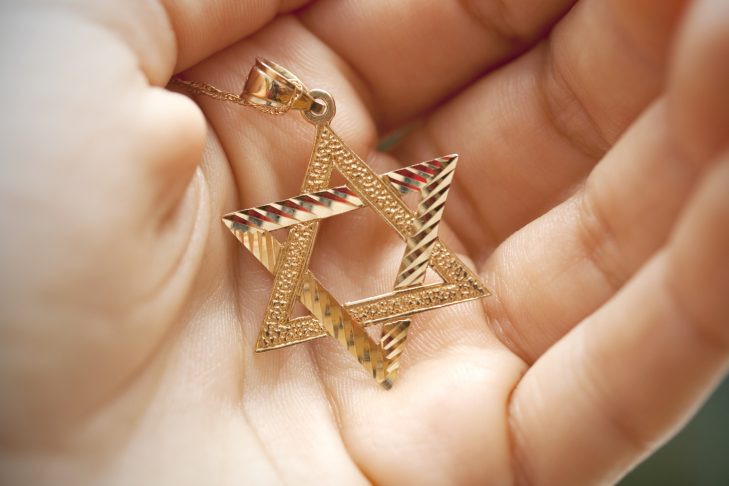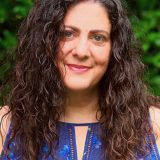The feeling of utter helplessness, anguish, and fear permeated each and every conversation in real life, on social media feeds, on WhatsApp groups, and in nightmares. There was no facet of life that wasn’t affected.
As an Israeli American, born in Jerusalem and raised in Memphis, I focused my energy on two tasks in the early days of the war: getting my father home from his brother’s house in Petach Tiqvah, Israel, where he was vacationing, and contributing to the war efforts.
I was, mercifully, given a task by my Israeli cousin, a soldier headed into Gaza whose unit needed army supplies, including tactical gloves, balaclavas, eye protection, hydration camel packs, and headlamps. (Israel was not prepared for an immediate call-up of its national reservists.)
While my husband and I scoured army surplus stores in Massachusetts and New Hampshire, I sent a voice message and a video to my Camp Ramah WhatsApp group, letting them know what we were doing to help Israel. Within 30 minutes, the group had organized and sent me contributions to cover the cost of the supplies and shipping.
That intense Jewish solidarity elevated me and many fellow Jews in those darkest of days. We watched in shock and horror as so many people turned their backs on profound Israeli suffering, having been methodically brainwashed by such groups as Social Justice for Palestine—an over 20-year public relations scheme by Hamas backers that has succeeded in creating unwitting, misinformed foot soldiers in their war against Jews.
I became fearful.
I was fearful to wear my Star of David necklace, fearful to put up lawn signs in support of Israel, fearful to attract the attention of a world seemingly overflowing with Jew haters. I experienced my first panic attack. I listened to my heartbroken niece as she told me the vitriol spewing from Hamas supporters on the campus of Harvard Law, calling for the globalization of the intifada and terrifying Jewish law students. I remained too fearful, four weeks later, to join my sister and camp friends at the Washington, D.C., March for Israel.
I let fear win, and therefore, Hamas won.
However, I watched every second of the rally on the livestream in my home. I cried. I cheered. I sang. And I cried again. And as I watched my fellow Jews, I gained courage. Here was nearly 2% of the world’s Jewish population, gathered together in solidarity, singing the Israeli national anthem, sharing the stories of the slain and captive, and vowing to stand strong against terror and hatred.
I put on my chai necklace my father—an Iraqi-born Jew who fled to the newly founded State of Israel as a boy—gave me, and I found my courage. Chai, or life, would be my shield.
Days later, I was at a grocery checkout, and the clerk, a mid-20s hulk of a man with a beard and kind eyes, motioned to my necklace and said he liked it. Surprised, I watched him roll up his sleeve to show me the two Hebrew letters—chai—tattooed on his forearm. In that moment, it was as if he had reached across the cash register and hugged me. The message communicated was clear: We are the Jewish people. We stand together, and together we are proud. We have allies. We will never forsake one another.
Later, I read a quote on social media epitomizing that sentiment. It stated that Jews learned in the weeks following the massacre how little the world seemed to care for us but were surprised to learn how much we cared for one another. It is this kinship I embrace more fiercely now.
I wish to be surrounded by like-minded Jewish women and have actively sought out that community. I recently attended a women’s retreat, my first event produced by Hadassah, the 112-year-old women’s Zionist organization in which my mother had given me a life membership decades ago, a membership I did not take advantage of—until now.
At the retreat, as I sang the Havdalah prayers that conclude Shabbat, bathed in the warmth of the candlelight and embraced by Jewish women who were strangers and sisters at the same time, I was overwhelmed by gratitude as well as by sadness for not getting involved in the organization sooner.
In times of trauma and war, we learned from experts at the retreat, we need community and we need purpose. Finding both has given me much-needed peace in these dark times.
We will not back down.
Am Yisrael Chai. The people of Israel live.
This post has been contributed by a third party. The opinions, facts and any media content are presented solely by the author, and JewishBoston assumes no responsibility for them. Want to add your voice to the conversation? Publish your own post here. MORE



